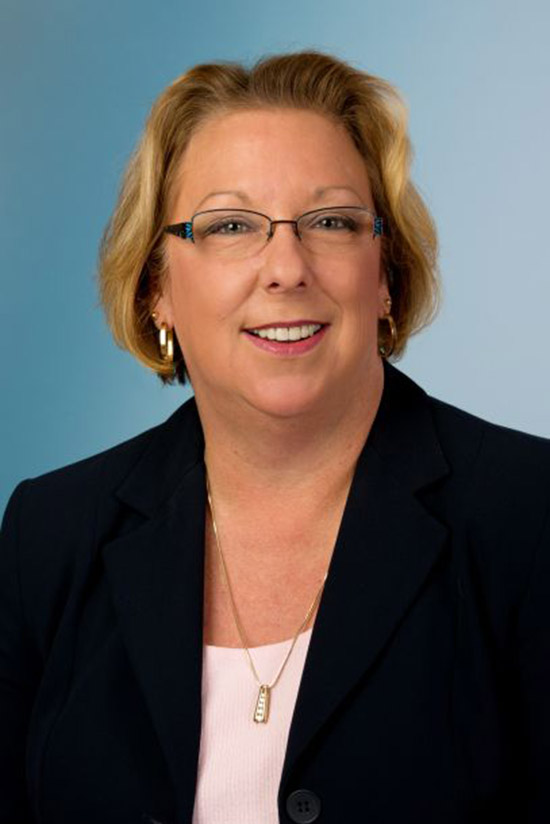
|
《财富》美国500强内部网络作为一个内部社区,将有《财富》美国500强公司的高管们在此与《财富》杂志全球的读者们交流思想和提供领导建议。今天我们的问题是:20多岁的年轻人应该如何为成功做好准备?以下为博格华纳公司人力资源副总裁吉姆·杰尼特的回答。 成功在很大程度上需要依靠人脉来实现。你或许认为,我持有这种观点的原因是,我在人力资源部门工作,人才是我们的核心资本。这种想法没有错,但我同样相信,这是我对不同职能部门、行业甚至文化的观察结果。我先后在多家公司摸爬滚打了30多年,还是有一点后知后觉的优势的——对于如何取得长远成功,我有三条建议,这些建议曾经让我受益良多。 首先,找一位导师。我曾有过一位,现在还有一位导师,而且我自己也做过别人的导师,我的经验可以证明导师的宝贵价值。导师经验更丰富,可以为一个人提供指导,支持他或她实现自己的职业发展目标。导师可以指引你做出初期的职业决定和未来的艰难抉择。导师能够提供中立的观点和第三方视角——他们所带来的新见解、智慧和经验,将让你受益匪浅。 在职业发展初期,你可能很难弄清楚,哪个方向可以给你提供最好的进步阶梯。正是在这个充满机遇的时期,你希望自己平步青云,获得迅速晋升,而导师可以帮助你开拓视野,做出更周全的决定。 在我初入职场时,一位导师鼓励我完成学业,并指引我进入人力资源行业。我先后取得了学士和硕士学位,之后我的职业得到了飞速发展。正是在导师的鼓励和培养下,我才能做出这些对职业发展至关重要的决定,但当时我还没有意识到这些指导的重要性。 我现在的导师来自博格华纳公司之外。每当我面临棘手的情况,需要外部观点提供支持时,我便会与导师交流——在我需要建议的时候,我可以向他请教。 正式的导师关系固然重要,但非正式的导师同样很有帮助。事实上,许多人都有自己的导师,只是我们没有意识到而已。你的兄弟姐妹,你的朋友,甚至宗教领袖,都可能成为非正式的导师,他们能够带来外部视角,以及自己的成熟经验和教训。 还有你的同事。永远不要低估培养同事关系的重要性——包括组织内横向和纵向的同事。即便“差劲的”老板也可以给你提供一些经验,虽然这种教训往往是反面的,警示你采取某些错误的管理方式。 那么,你如何培养这些关系?通过面对面的接触。我要特别强调这一点。Facebook和iPhone不会帮助你发展人际关系。你必须走出去,与人面对面交流。你将从他们口头或非口头的暗示中,获得有价值的见解。发短信无法为你建立丰富的人际关系。人际关系很重要:它们是导师方程式中至关重要的一部分。 要灵活,要移动起来, 以开放心态对待新事物 我经常看到,人们在工作中太过安逸,导致真正的成长和发展陷入停滞。但一旦你走出舒适区,接受新的挑战,你会发现许多令人兴奋的事物。你将丰富自己的技能,拓宽视野,即便你只是在组织内部横向调动,而不是晋升。关键是知道应该在什么时候行动起来。没有人想频繁换工作,但打个比方,接受一份异地的工作或者在另外一个国家接受一份短期任务,可以帮助你获得新的技能与经验,让你为长远成功做好准备。 当然,这并不意味着这个过程没有风险。你可能需要更努力地工作,新工作可能更有挑战性——所以,有些人并不愿意接受它。在前往底特律之前,我在芝加哥的工作一直很安逸,我很喜欢这样的状态。后来我得到了一个新的机会,但工作地点是在其他州。当时,我的导师要求我在认真权衡得失之后再做决定。在那之后,我一直在博格华纳工作,我可以毫不犹豫地告诉你,你所承担的风险都是值得的。那次变动为我打开了一个全新的世界,给我带来了新的人际关系、新的挑战和新的经历。走出舒适区,帮助我通过一种从未想象过的方式不断成长。在这个过程中,我遇到了许多新的机遇,最终让我在人力资源领域取得了巨大的成功。 年轻人们应该始终牢记,要灵活,要移动起来,以开放心态对待新事物,只有这样,你才能为今后的成功打好基础。做到这些,你将变得与众不同,并在竞争中脱颖而出。(财富中文网) 译者:刘进龙/汪皓 审校:任文科 |
The Fortune 500 Insider Network is an online community where top executives from the Fortune 500 share ideas and offer leadership advice with Fortune’s global audience. Kim Jenett, vice president of human resources at BorgWarner, has answered the question: What can 20-somethings do to set themselves up for success? Success is, in large part, about people. You may think my point of view is such because I work in human resources where people are our capital. While this is true, I believe my observations cross functional disciplines, industries, and even cultures. With more than three decades of corporate experience behind me—and thus the advantage of 20-20 hindsight—I offer three pieces of advice for long-term success, each of which has served me well. First, find a mentor. I’ve had one, I currently have one, I have been one, and I am proof that they work. A mentor is someone who is more experienced and can help guide an individual in support of his or her professional development goals. It is someone who can guide you in making early career decisions and tough choices later on. A mentor has a neutral voice and a third-party perspective—someone who can provide new insights, wisdom, and experiences that you can learn from. Early in your career, you may grapple with which direction might provide the next best stepping stone. It’s during this time of opportunity where you’ll want to quickly move through the ranks, and a mentor can help you see the broader picture and make thoughtful decisions. When first starting out in my career, a mentor encouraged me to finish my education and guided me to an HR career. I completed a bachelor’s degree, a master’s degree, and then quickly progressed. These were crucial career-building steps that my mentor encouraged and nurtured, but I didn’t realize how impactful this guidance was at the time. My mentor today is someone outside of BorgWarner who I talk to when I need an outside perspective on maneuvering through sticky situations—someone who I can turn to when I need advice. While formal mentorships are important, informal ones can be equally so. In fact, many people have mentors and don’t even realize it. A sibling, a friend, and even a religious leader can be an informal mentor who offers an outside perspective and a set of his or her own experiences ripe with learnings. Next up are your colleagues and co-workers. It’s critical not to underestimate the value of developing relationships—both up and across the organization. Even “bad” bosses offer lessons—even if that lesson is in how not to manage people. So, how do you cultivate these relationships? Through face-to-face contact. I can’t stress this point more ardently. Facebook and your iPhone won’t get you there. You have to go out and meet with people. You will gain valuable insight from their verbal and nonverbal cues. Rich relationships don’t happen via text messaging. Relationships matter: They’re a significant part of the mentoring equation. Be flexible, mobile, and open to new experiences I see it time and again where people get so comfortable at a job that real growth and development become stagnant. But exciting things happen when you go outside of your comfort zone and take on new challenges. You’ll broaden your skills and view of the world, even if you’re moving across an organization vs. up. The key is knowing when to make these moves. You don’t want to job hop, but taking a job in a different location or a short-term assignment in another country, for example, can give you a set of skills and experiences that will set you up for long-term success. This doesn’t mean there isn’t risk involved. You may have to work harder, and the work may be more challenging—some people aren’t willing to take that on. Before moving to Detroit, I was comfortably working in Chicago at a job I really liked. When I was offered a new opportunity that required me to move to a new state, my mentor pressed me to think very critically about what I had to lose and what I had to gain. I’ve been at BorgWarner ever since, and I can tell you without hesitance that the risk was well worth it. The move opened up a whole new world for me, with new relationships, new challenges, and new experiences. While it was way outside of my comfort zone, it helped me grow in a way that I couldn’t have ever imagined. And it opened up a number of future opportunities that helped shape a very successful career in HR. Remember to always set yourself up for future success by being flexible, mobile, and open to a variety of experiences. It will truly make a difference and set you apart from others. |






